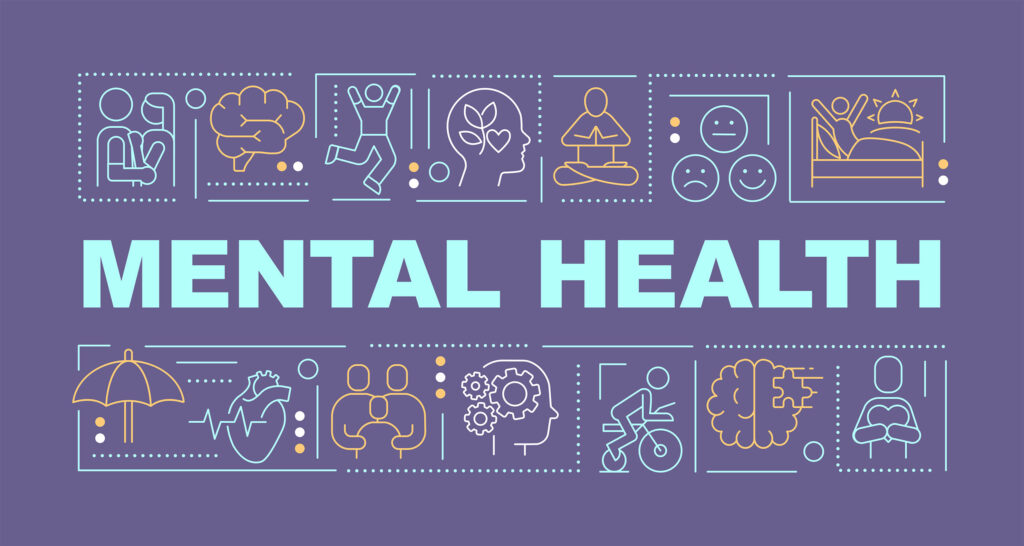The Importance of Mental Wellness: a Deep Study Therapy, Treatment, and Their Benefits
Psychological wellness greatly forms individual health, influencing habits, ideas, and emotions. Counseling and therapy function as necessary methods for recovery and personal growth. They provide structured support, helping people browse life's difficulties. Numerous stay uninformed of the certain types of treatment readily available and their distinct benefits. Comprehending these elements is essential for anybody taking into consideration specialist mental wellness support. What adheres to may light up paths to resilience and fulfillment that many neglect.
Comprehending Mental Health And Wellness and Its Effect
Mental wellness is frequently overlooked, it plays a necessary role in total well-being and day-to-day performance - Couples Therapy. It incorporates emotional, emotional, and social elements that affect exactly how people believe, really feel, and act. A person's psychological health and wellness straight impacts their ability to take care of stress and anxiety, associate to others, and make options. Poor mental health can cause various problems, consisting of stress and anxiety, depression, and problem in maintaining relationships, every one of which can prevent professional and individual growth.Furthermore, psychological health has significant effects for physical health. Persistent anxiety and untreated psychological conditions can contribute to different physical conditions, such as heart problem and deteriorated immune reactions. Conversely, favorable psychological health fosters durability, enabling people to manage life's difficulties successfully. Comprehending mental wellness's value is crucial for promoting supportive atmospheres that advertise psychological health, therefore improving the lifestyle for neighborhoods and people alike
The Various Kinds of Counseling and Treatment
In the domain name of mental wellness, various counseling and treatment types provide to diverse requirements. Private therapy approaches concentrate on personal concerns via individually sessions, while team therapy characteristics foster shared experiences and assistance amongst individuals. Understanding these methods is vital for selecting the proper treatment for different difficulties.
Individual Therapy Strategies
Many individual therapy approaches exist, each designed to address details psychological health issues and satisfy varying client requirements. Cognitive Behavioral Treatment (CBT) concentrates on recognizing and altering adverse thought patterns, while Psychodynamic Treatment checks out previous experiences and unconscious processes. Humanistic Therapy highlights personal development and self-actualization, promoting a helpful setting. Interpersonal Treatment (IPT) targets relationship issues and interaction patterns to enhance emotional health. Furthermore, Acceptance and Commitment Therapy (ACT) motivates clients to accept their ideas and feelings while dedicating to individual worths. Each technique offers special strategies and approaches, allowing specialists to tailor their techniques to the individual, thereby enhancing the healing experience and advertising mental health and wellness healing.
Team Therapy Characteristics
Group therapy characteristics incorporate various restorative approaches that take advantage of the power of interpersonal relationships and common experiences. This type of therapy often includes diverse teams, cultivating a risk-free environment for participants to share feelings and thoughts. Key types of group treatment include support system, which supply emotional support; process-oriented groups, concentrating on social communications; and psychoeducational teams, focused on presenting expertise concerning mental health and wellness problems. The dynamics within these teams can boost self-awareness, as participants commonly review their actions in relation to others. Furthermore, team treatment fosters a sense of belonging, decreasing sensations of isolation. Via shared stories and collective problem-solving, participants can establish dealing methods and obtain insights, eventually contributing to individual growth and healing.
The Function of Counseling in Mental Health
Therapy plays a vital duty in psychological health and wellness by providing various approaches tailored to private needs. These approaches offer specialist advice that can result in considerable improvements in psychological well-being. Understanding the different kinds of counseling can aid people make notified choices regarding their mental healthcare.

Sorts Of Therapy Strategies
While various counseling approaches exist, each offers unique approaches and insights into mental wellness treatment - Cognitive Behavioural Therapy. Amongst one of the most popular are cognitive-behavioral treatment (CBT), which focuses on altering adverse thought patterns; psychodynamic treatment, which checks out subconscious processes and youth experiences; and humanistic methods, emphasizing personal development and self-actualization. Furthermore, solution-focused quick treatment focuses on locating services in today instead of delving into problems. Team therapy fosters neighborhood and shared experiences, while household treatment addresses relational dynamics within domestic frameworks. Each approach caters to different requirements, lining up with specific choices, issues, and healing goals. Comprehending these strategies assists clients make educated options about their mental health journey and promotes effective treatment tailored to their unique scenarios
Benefits of Expert Assistance
Various people gain from expert support in managing their psychological health obstacles. Therapy supplies a safe room for clients to explore their ideas and sensations without judgment. This therapeutic setting fosters self-awareness, enabling individuals to recognize patterns in their actions and establish healthier coping techniques. Expert advice also supplies access to evidence-based techniques that can reduce signs and symptoms of anxiety, depression, and other psychological wellness problems. In addition, therapists can aid in setting realistic goals and provide assistance in accomplishing them, enhancing overall well-being. The joint partnership in between counselor and customer is crucial, as it promotes responsibility and urges personal growth. Eventually, professional advice plays a crucial function in guiding mental health and wellness journeys, leading to boosted emotional strength and life contentment.
Benefits of Therapy: Healing and Growth

How to Pick the Right Specialist or Therapist
Just how can one navigate the frequently frustrating procedure of selecting the right specialist or counselor? Determining individual demands is essential; people must consider their details issues, whether anxiety, clinical depression, or relationship difficulties. It is helpful to study different restorative methods, such as cognitive-behavioral therapy or psychodynamic treatment, to locate an appropriate match.Next, prospective customers should look for references from trusted sources or utilize online directories. It is essential to review specialists' credentials, including their education, licensing, and areas of specialization. Scheduling preliminary examinations can aid assess compatibility, permitting people to examine communication designs and personal comfort.Finally, logistical factors, such as location, availability, and costs, ought to additionally be thought about. By thoughtfully weighing these components, one can make a notified choice, inevitably cultivating a healing relationship that supports psychological health and wellness and individual development.
Conquering Stigma: Accepting Mental Wellness Support
While social mindsets towards psychological wellness have advanced, preconception still presents a significant obstacle for numerous looking for assistance. This stigma often manifests as mistaken beliefs bordering mental ailment, leading people to feel embarassment or fear concerning their struggles. Many individuals think twice to pursue counseling or therapy due to fret about being evaluated or classified. Conquering this preconception is essential for fostering a supportive environment where more information people can openly review their psychological wellness needs.Communities and organizations play a vital role in this transformation by advertising awareness and education concerning mental health problems. Efforts that highlight personal tales can humanize these experiences, urging others to look for aid without worry. As acceptance grows, people might feel a lot more encouraged to accept psychological health and wellness assistance, acknowledging it as an essential aspect of total well-being. By dismantling preconception, society can grow a culture of understanding, concern, and aggressive psychological wellness treatment.
Strategies for Keeping Psychological Health Beyond Treatment
Therapy gives useful assistance, preserving mental wellness outside of sessions is similarly essential. People can implement a number of methods to maintain their psychological wellness. Regular physical task plays a necessary role, as this content workout advertises the release of endorphins, which improve state of mind. Additionally, a balanced diet regimen rich in nutrients can greatly influence psychological stability and energy levels.Practicing mindfulness and meditation assists individuals manage stress and anxiety and establish higher self-awareness. Developing a constant sleep routine is also fundamental, as quality remainder is crucial for cognitive function and emotional regulation.Engaging in social tasks cultivates link and reduces sensations of seclusion. Seeking leisure activities or interests can provide an imaginative outlet and increase self-worth. Lastly, practicing and setting realistic objectives self-compassion enables individuals to grow strength. By integrating these methods into daily life, people can effectively sustain their mental well-being beyond treatment sessions.
Regularly Asked Questions

Just How Can I Inform if I Required Treatment?

Figuring out the need for therapy frequently entails recognizing consistent sensations of sadness, stress and anxiety, or overwhelming stress and anxiety. If daily operating ends up being challenging or coping systems fail, looking for professional support may be an advantageous action onward.
What Should I Anticipate in My First Therapy Session?
In the initial treatment session, people can anticipate an introduction, discussion of their reasons for looking for assistance, and an overview of the therapist's strategy, producing a foundation for future discussions and establishing convenience in the restorative space.
Are Online Treatment Sessions as Effective as In-Person Ones?
Research suggests that online therapy sessions can be as efficient as in-person ones. Elements such as the specialist's credentials, client interaction, and the healing relationship considerably affect results, no matter the medium used.
Can Treatment Assist With Relationship Concerns?
Therapy can assist individuals in resolving relationship problems by supplying tools for interaction, understanding emotions, and resolving conflicts. Cognitive Behavioural Therapy. It promotes healthier characteristics and motivates individual development, inevitably fostering stronger, extra satisfying connections between partners
How Much Time Does Therapy Generally Last?
Treatment duration varies significantly based upon individual requirements and objectives. Usually, sessions might last from a couple of weeks to several months, with some people participating in recurring treatment to address long-term concerns and individual growth. Cognitive Behavior Therapy (CBT) concentrates on recognizing and transforming negative thought patterns, while Psychodynamic Therapy explores previous experiences and subconscious processes. Key kinds of group treatment consist of assistance groups, which offer emotional assistance; process-oriented groups, focusing on social communications; and psychoeducational groups, aimed at imparting knowledge regarding mental health problems. Among the pop over to these guys most popular are cognitive-behavioral therapy (CBT), which concentrates on changing negative thought patterns; psychodynamic therapy, which discovers unconscious procedures and youth experiences; and humanistic approaches, stressing personal development and self-actualization. Team treatment cultivates area and shared experiences, while family members treatment addresses relational characteristics within familial structures. It is advantageous to research study various restorative approaches, such as cognitive-behavioral treatment or psychodynamic treatment, to discover an ideal match.Next, prospective customers should look for referrals from trusted resources or utilize on-line directory sites.
Comments on “How to Find Mental Health Resources in Your Local Community”